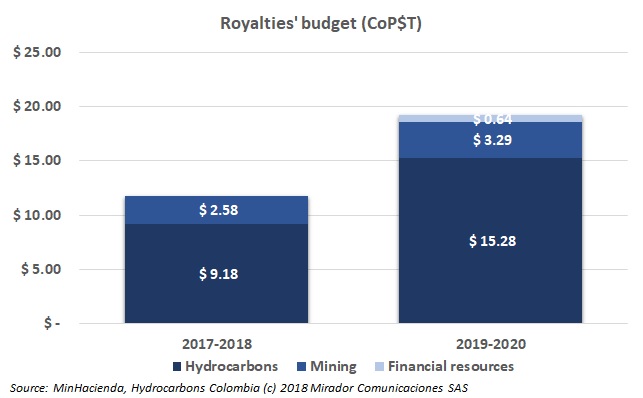Bogota announced the renewal of the bus fleet for Transmilenio, but this decision was not well-received in some sectors.
Francisco Lloreda, President of the Colombian Petroleum Association (ACP), wrote an Op-Ed about fracking.
Ecopetrol’s (NYSE:EC) Vice president of Production and Development, Héctor Manosalva, spoke about the fracking pilot project that was recently announced by CEO Felipe Bayón.
The oil sector continues to face legal and social uncertainty in Colombia. A ‘judicial battle’ between Ecopetrol (NYSE: EC) and people of Tauramena started several years ago due to the result of an anti-oil referendum, and it seems like this process continues, despite a recent court decision in favor of the NOC.
The government policy topic of the quarter for oil producing countries is economic diversification. The IEA says they cannot count on oil revenues and so need to find new sources relatively quickly. Colombia is not an ‘oil country’ but the same debate runs here.
The development of unconventional deposits is one of the main strategies to increase reserves and production of oil and gas in Colombia. Ecopetrol (NYSE: EC) initiated a legal process to develop these projects in the country.
Official studies show that the Amazon occupies 42.3% of the Colombian territory. Implementing popular consultations in the area is far from easy.

Ivan Duque, President of Colombia, spoke about the advances in issues related to royalties’ resources since his administration began in an event about the Collegiate Body of Administration and Decision (OCAD). He announced a project to change the General System of Royalties (SGR).
Through a ruling, the Constitutional Court said that popular consultations can no longer forbid or decide on the future of industry activities in the regions. Where do communities stand now?
Colombia is a member of the Extractive Industry Transparency Initiative (EITI) and the Ministry of Mines and Energy (MinMinas) participated in Board # 41 of this organization. The country introduced its representative for the EITI.